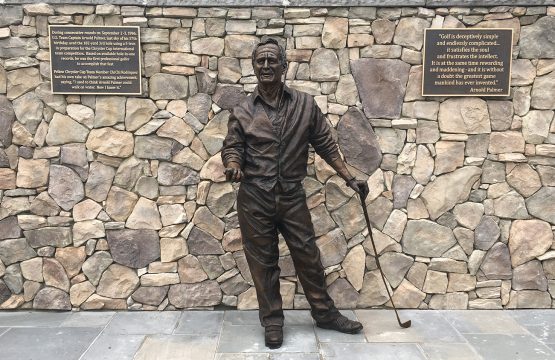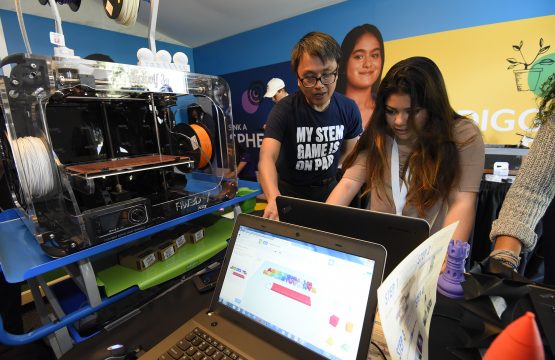Meet Jonathan Bowie: An Unrelenting Champion
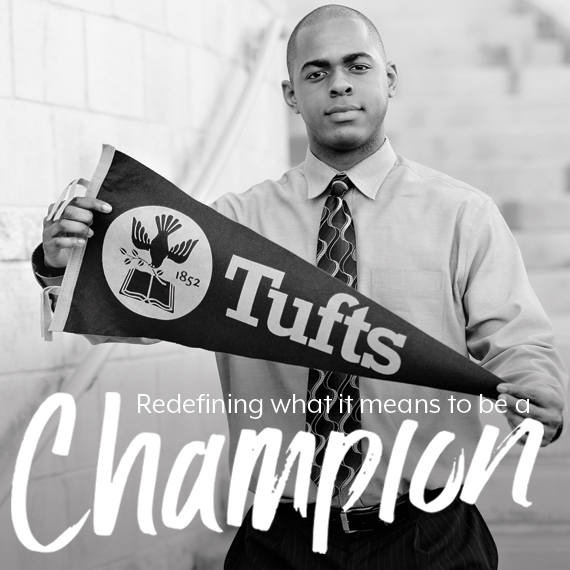
Since he was a little boy, seven-years-old to be precise, Jonathan Bowie knew he wanted to serve his country. Born and raised in the nation’s capital, he dreamed of being a fighter pilot. At the age of 16, Jonathan’s plans evolved but his love of country never waned. He was determined to be an officer in the military, with a goal of entering the Air Force—and from that point on, Jonathan set those wheels in motion.
Growing up in a working-class family with his parents and younger brother, Earl Woods Scholar alum Jonathan took school seriously. He was never a star athlete or the class clown. Rather, chess was his sport. He was the student at his inner-city Washington, D.C. public school that was going to make it into college. He’d be the first in his household to do so.
“As a child, I think I was always a bit of a nerd, a bit of studious type in an environment that was not very studious,” he explains. “Starting in middle school, people didn’t have the highest expectations for themselves or much respect for education, so teachers often had to spend more time disciplining than teaching.”
Despite the challenges within his school environment, Jonathan remained focused. With his goal set on being an officer in the Air Force, he knew his next step would be to attend college and earn a bachelor’s degree. But for Jonathan, his drive toward higher education was more than a pit stop on his way to the military.
“While my parents insisted that I go to college, I went because of myself. I wanted a degree, I wanted the experience of college,” he explains. “I always fancied myself a bit of an academic and it’s kind of hard to be that and not go to college.”
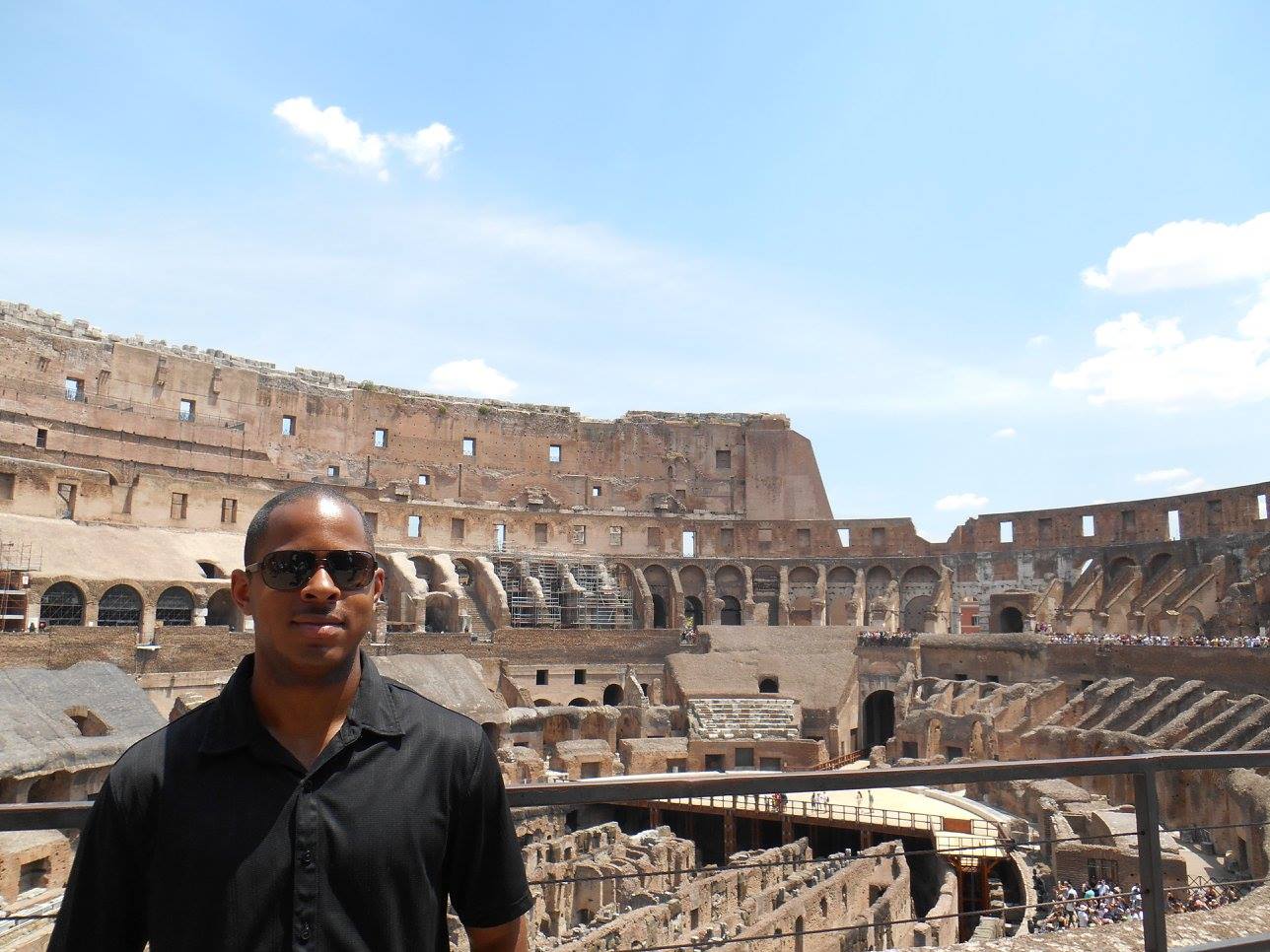
Tufts University in Medford, Massachusetts is where he spent his next four years. However, like many first-generation college students, Jonathan had a challenging time adjusting to his new life and his new peers.
“They were accustomed to taking vacations. Their parents often had more than one home. They were prepared for this level of education,” he said. “They were conditioned from the age of four to go to a school like Tufts whereas I wasn’t. The majority of the students at Tufts are white and I am not. There were some stark differences that I was reminded of on a very regular basis.”
Jonathan’s college experience was far from ideal—he struggled academically and he doubted his abilities. He dropped two of his four classes and went down to a part-time status during his first semester. By the end of his first year, Jonathan was on probation with the financial aid office, the dean’s office and the ROTC.
“At the time I blamed myself,” he said. “I thought I was deficient in some way, that I was inadequate. To be honest, that was a feeling I wrestled with until the day I graduated. I felt very, very bad about myself. I never felt up to snuff.”
But despite his insecurities, Jonathan never walked away. He met with his advisor who told him to rethink his major—International Relations and Arabic—and instead pick something based on his interests. He did just that when he switched to History and Religion. Yet for Jonathan, the self-doubt never left him, even when he started thriving academically.
“I was often afraid to answer questions. I didn’t think that I had anything valuable to contribute. I spent my college years wondering if Tufts had made a mistake in admitting me,” he shared.
Jonathan found a niche for himself within the university, through the ROTC program as well as the Mixed Martial Arts club, where he served as president for three years. But again, throughout his four years at Tufts, he felt a disconnect from the vast majority of the student body.
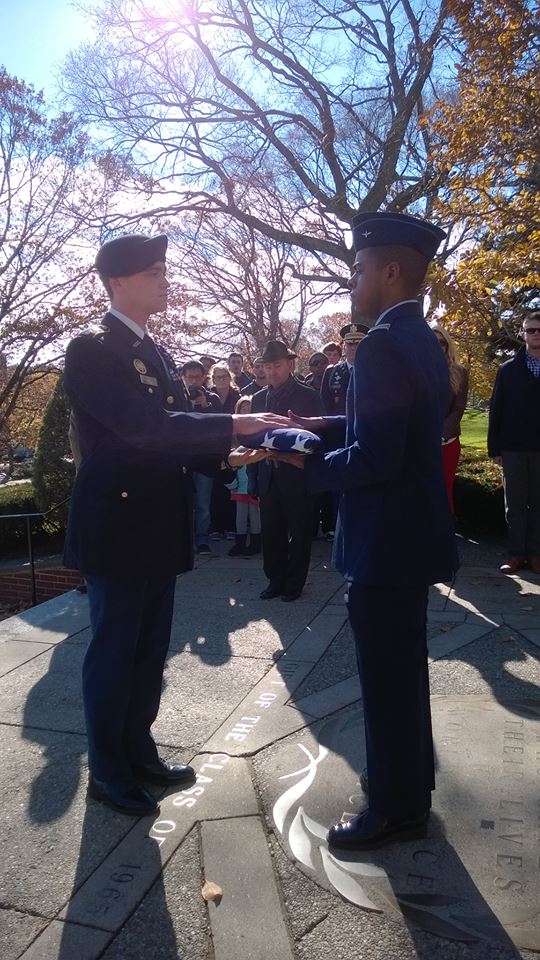
“No one really shared my experiences of coming from the inner-city to the little Ivy that Tufts was,” he explained.
For Jonathan, the Earl Woods Scholar Program (EWSP) gave him the opportunity to meet kids who he could relate to and connect with. Held annually every winter at the TGR Learning Lab in Southern California, EWSP’s Winter Workshop proved to be an invaluable experience were he not only had a chance to gather with other first-generation college students, but gain professional skills not often taught in the classroom.
“I got to meet peers who were from backgrounds similar to mine. I just got along with everybody so well surprisingly, from day one,” he explains.
The workshop’s focus on professional development also stood out to Jonathan.
“Interview skills, working on elevator pitches, writing resumes, setting up a LinkedIn profile, things that I might not have necessarily thought about as a college student—this is what the foundation provided for me,” he said. “Those were very beneficial experiences for me that will pay off in the long run.”
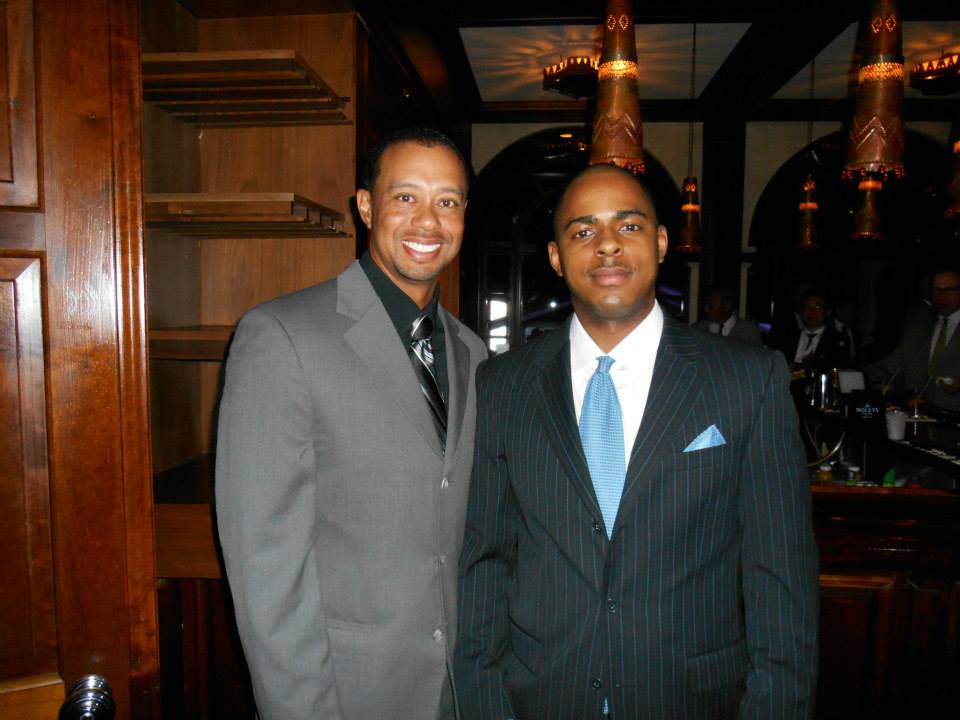
However, for Jonathan, the most significant contribution the Earl Woods Scholar Program made in his life was in the form of a summer internship. Unbeknownst to him, Earl Woods Scholar Program manager at the time, Michelle Kim, set him up with an interview with the General Services Administration, a D.C. based government agency that manages all federal real estate and property. Within two weeks of interviewing, Jonathan was hired.
For Michelle Kim, helping place scholars in internships was a cornerstone of her role at the scholar program. But from the start, Jonathan stood out to her.
“From the moment I met Jonathan, I was so impressed with how poised, intelligent, driven and focused he was,” she said. “When I told him about the unpaid internship at General Services Administration he was so excited, he took the opportunity and ran with it. In fact, he did so well that his supervisor asked him back the following year and offered him a paid position.”
Not only was Jonathan invited back the following year, but he returned to the job every summer and winter break throughout his four years at college, and worked there for a year after graduation. His job helped him earn money for a much-needed car, pay for his textbooks and cover his living expenses. But above all, his years at General Services Administration led to something far more valuable—it gave him a mentor.
A fellow African-American with a long and prominent career in government, Samuel Claybon served as Jonathan’s supervisor at GSA and over the years, he’s come to be his confidante, sounding board and guidepost. Without a doubt, the biggest takeaway from his years at GSA is his professional relationship with Samuel. And for Samuel, his mentor/mentee relationship with Jonathan was just as rewarding.
“It was an honor to meet and mentor Jonathan Bowie while serving as an intern at the General Services Administration,” shared Samuel. “He was focused and keenly aware of his career goals. We shared many conversations on educational expectations, career ambitions to life pursuits. He is smart, insightful, enthusiastic, and possesses the skills and leadership necessary to achieve success in his life endeavors.”
What’s clear to all who meet Jonathan is that he’s not one to lose sight of his goals. His razor-sharp focus kept him on track throughout Tufts, regardless of the hurdles he had to overcome. In fact, it was those hurdles that made his successes all the sweeter.
“May 18, 2014 I did two things I never thought I would do,” Jonathan shares. “The first being I graduated from Tufts University, while the second was me proceeding to the bathroom immediately after walking across the stage to cry my eyes out. The day I never thought would arrive had finally come.”
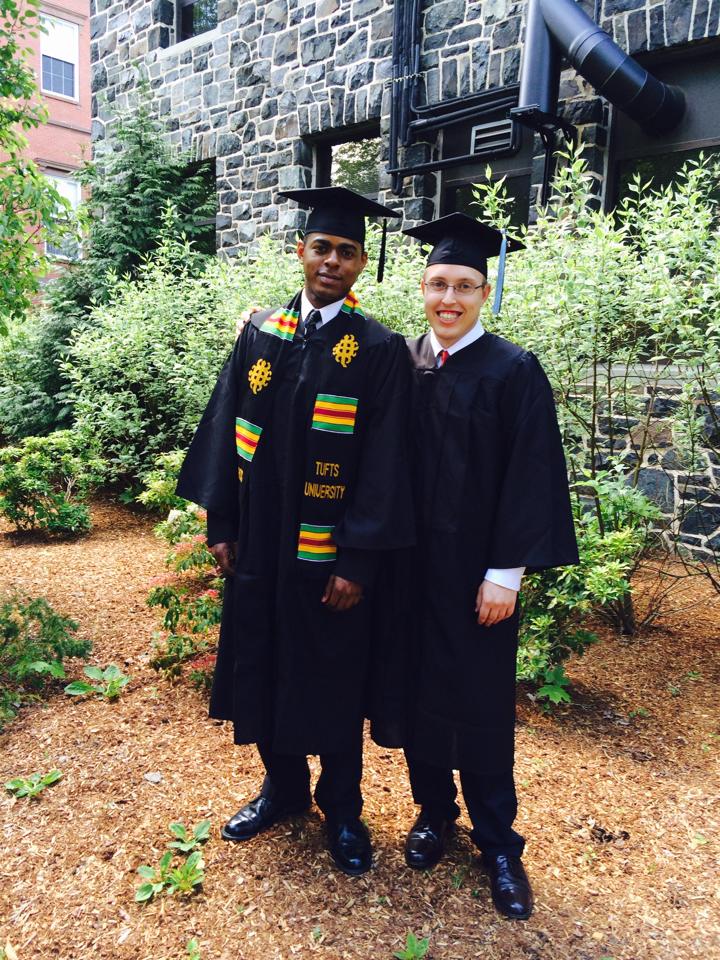
With his parents, brother and uncle by his side, graduation from Tufts was a monumental moment for Jonathan. He remembers his parents swelling with pride, and relieved that he made it through—relieved that he did not drop out and enlist.
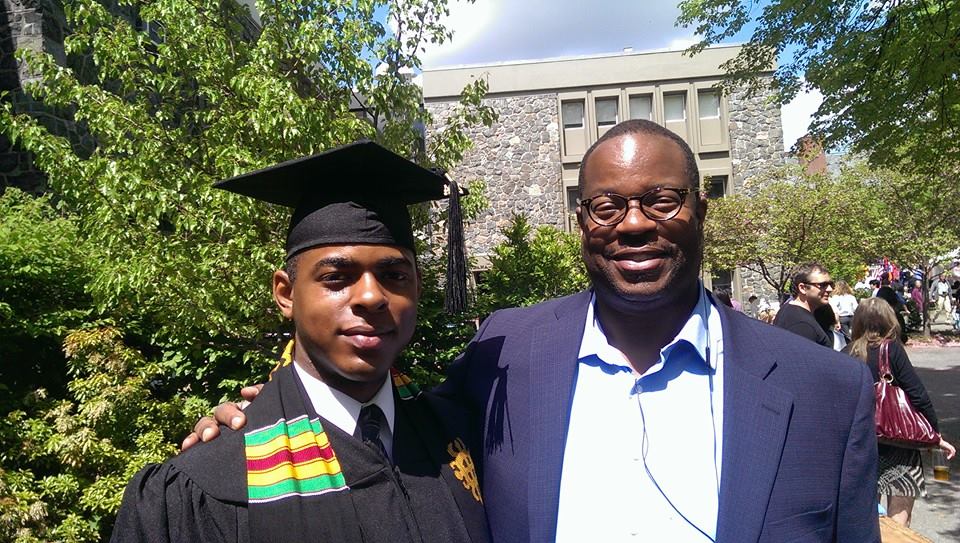
“They were incredibly, incredibly proud,” Jonathan says of his parents. “But I think I was prouder though. It was the happiest day of my life. It was a euphoric high. Something that I thought would never happen had finally happened. I think that I cried harder that day than any other day in my life.”
And just one day prior to graduating from college, Jonathan achieved another lifelong goal when he was commissioned as a Second Lieutenant in the United States Air Force. The dream that he held onto ever so tightly since the age of seven turned into a reality.
With a six-month stint in military tech school in San Angelo, Texas, where he received intensive training for his specialty in the Air Force—intelligence—Jonathan has since been stationed in Stuttgart, Germany, finishing a two year tour that will end in December 2017. After that, he will move on to his next duty station, though he has no idea where that will be yet.
When he’s not working, Jonathan is busy studying German, using textbooks, newspapers and conversing with locals to teach himself how to read and write the language. And he’s already planned out his next few goals: earning a master’s degree in military history and serving 20 years in the military, working his way up to Lieutenant Colonel.
And with his unrelenting determination, nothing will keep Jonathan from accomplishing what’s next on his list. In fact, Cristina Fernández, senior director of the Earl Woods Scholar Program, summed him up best.
“There is depth to Jonathan—he’s definitely a force to be reckoned with. You could see and feel the grit and determination he always had for his future during his undergraduate years, even if he doubted himself,” she said. “Jonathan has always persevered. He didn’t let any preconceived ideas others may have had of him get in his way. He’s achieving the goals he set for himself—and he’ll continue to do so. There is no stopping him.”
Proceeds from this week’s Quicken Loans National directly support Earl Woods Scholars like Jonathan Bowie.
Redefining what it means to be a champion.

